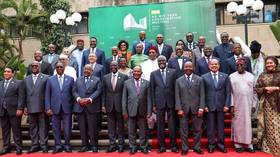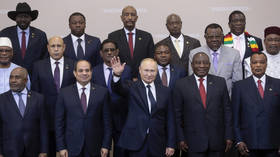Kenya advocates reforms for African autonomy

The African Union (AU) must pursue reforms aimed at making the body financially self-sufficient as it seeks to position the continent as a new global power by 2063, Kenyan President William Ruto said on Sunday.
Ruto was speaking at the AU’s fifth mid-year coordination summit in Nairobi, which aimed to address critical issues of African integration, among other things.
The East African country’s leader commended the continental body for its “great work” in managing and resolving ongoing challenges, contributing to the continent’s commitment to sustainable solutions.
He did, however, say that more needs to be done, including capitalizing on the AU’s restructuring to deliver the “highly sought-after Pan-African transformation.” The Pan-African vision of the AU seeks to build a united, prosperous, and harmonious Africa led by its own people and recognized as a powerful entity on the global stage.
“Self-reliance is essential, as is a fit-for-purpose institutional architecture,” Ruto said, adding that international partners currently fund more than 60% of the AU’s program budget.
“The demands of our challenging time require an AU that can pursue multiple urgent and critical interventions using internally mobilized resources. The Pan-African movement has always been about sovereignty and agency, first and foremost. Chronic dependence on well-meaning partners is starkly inconsistent with this aspiration,” he insisted.
In 2018, the AU set up the African Continental Free Trade Area (AfCFTA) with the aim of removing obstacles and enhancing trade within member states.
Described by the World Bank as the planet’s largest free-trade area, it is projected to lift 30 million people on the African continent out of extreme poverty and boost incomes by 7%, or $450 billion, by 2035. So far, 54 countries have signed the AfCFTA pact, with Eritrea being the only nation yet to do so.
Kenya’s president stated on Sunday that the progress made in implementing the single market agreement demonstrates that “African integration is unstoppable, and it will open doors for unprecedented socioeconomic transformation.”
More than 40% of the 55 member states do not pay their annual contributions, rendering the body’s current financing structure unsustainable, according to a report by the AU.
The continental body says it intends to implement a 0.2% levy on eligible imports in order to achieve sustainable and member-driven financing of its operations and programs.













